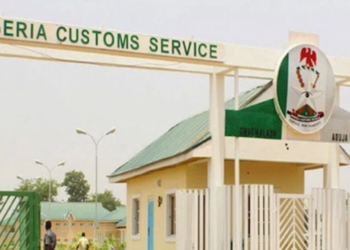The Nigeria Customs Service (NCS) has said that only the items imported by the President and Commander in Chief of the Federal Republic of Nigeria are exempted from the payment of duties or taxes.
The clarification follows the activities of some ministries, departments and agencies (MDAs) with regards to their imports of vehicles and other equipment.
This disclosure is contained in a statement signed by the Deputy National Public Relations Officer of the NCS, Mr Timi Bomodi, on Friday, August 6, 2021, in Abuja, according to NAN.
The statement said, “We wish to reiterate that by law, only items imported by the President, Commander in Chief of the Federal Republic of Nigeria, are exempted from the payment of duties or taxes.’’
What the NCS National Deputy PRO is saying
Bomodi said that government Ministries, Departments and Agencies (MDAs) were expected to pay duties on vehicles or other items they imported, except where waivers and concessions were sought and granted.
The statement reads, “The attention of the Nigeria Customs Service has been drawn to a trend in the activities of certain Ministries, Departments and Agencies, with regards to their import of vehicles and other equipment.
“The NCS wishes to state that except where waivers or concessions were sought and granted, all outstanding duties and taxes relating to such imports are expected to be paid in full. This applies even in situations where these imports were executed by agents or proxies on their behalf.
“The NCS is, therefore, by this notice sensitising MDAs and advising them on the need to adhere strictly with import guidelines in this regard.’’
Bomodi further explained that contractors, who import and supply such equipment or vehicles without payment of duties, would be considered liable as fraudulent importers.
He added, “We urge them to avail themselves of our trade facilitation tools available on and offline. This is necessary to avoid embarrassments in future.’’
Bottom line
The statement from the Nigeria Customs Service becomes very necessary as there have been reports of government agencies who have failed to meet up with their tax obligations or fail to remit taxes collected on behalf of the government.
The evasion of tax has negatively impacted Nigeria’s revenue generation especially at this time when the country’s tax to GDP ratio is considered very low by economic and financial experts in addition to multilateral institutions.

















